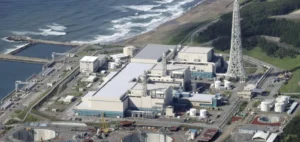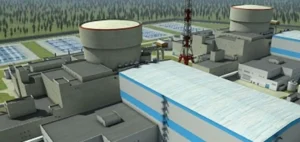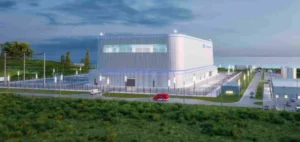The nuclear industry is looking for engineers, boilermakers and welders: the sector has 100,000 people to find and train over the next decade to support the revival of the nuclear industry in France, according to a memorandum submitted to the government on Friday. With at least six EPRs to be built and power plants to be extended, the nuclear industry, which supplied more than 60% of France’s electricity in 2022, is facing huge challenges, both industrial and human.
Announced in February 2022 by Emmanuel Macron after years of procrastination, the relaunch of nuclear power in France is shaping up to be “one of the most important industrial programs for our country since the 1990s,” says Gifen, which brings together the sector’s industrialists, in its report called “Match.” It will therefore be necessary to recruit and train on a massive scale, while the industry is short of manpower and France has not built any reactors since 2002, leaving the sector fallow for years.
The study was handed over Friday to the Minister of Energy Transition Agnès Pannier-Runacher and her Industry counterpart Roland Lescure, at Tricastin, one of the strongholds of the French nuclear industry, which is home to a uranium enrichment site for France and Europe operated by Orano (formerly Areva).
The first observation is that the industry expects to see the volume of work required grow by 25% over the next 10 years, in some 20 operational activity segments. This scope covers in particular the maintenance of the existing nuclear fleet and the construction of the first six EPRs, uranium and waste management activities, the dismantling of old reactors, as well as France’s share of the construction of EDF’s EPRs in Great Britain and India. The ministers have asked Gifen to complete this study by the summer by integrating “the challenges of nuclear exports in Europe and the prospect of building nuclear reactors in France and small modular reactors, beyond the first six EPR2 reactors,” the ministries said in a statement.
“Extremely valuable.”
In order to carry out these projects, the report confirms a figure that has already been mentioned in recent months: “the foreseeable need” is around 100,000 new hires over 10 years, for the entire sector, which has 220,000 jobs, including the “core” jobs of operators and their first suppliers, but also second-tier suppliers and support functions (HR, management, sales).
In detail, the industry will have to rely on “60,000 full-time equivalent recruitments” in its core businesses, of which “half to meet the renewal of retirements or to other economic sectors,” says the report, which is based on feedback from a hundred companies. “The bulk of the effort on this growth in employment” will focus in particular on suppliers, and this while “they do not always benefit from the same attractiveness as large groups,” said Olivier Bard, General Delegate of Gifen during a presentation to some journalists.
“We’re going to have to recruit 2.5 times as many people as are leaving over the ten years for the providers,” he estimated. A total of 20 operational activity segments characteristic of the sector were studied (engineering, civil engineering, testing and control, boiler making-piping-welding, etc.), and their 84 key trades were evaluated to identify needs over 10 years.
The most sought-after jobs? Boilermaking, where recruitment will increase by 140% over 10 years, and even more so in civil engineering (+220%). “We will recruit at all levels, from the pro baccalaureate to engineers,” stressed the Ministry of Energy Transition.
In order to meet these challenges, the industry will rely on all age groups. “Seniors who have nuclear skills will be extraordinarily valuable,” said Agnès Pannier-Runacher at Tricastin, calling for “inventing ways of working, combining jobs and retirement, and supporting the transmission of knowledge.
In order to specify these needs, the University of Nuclear Professions will submit its detailed action plan for training and skills to the ministers in early June.






















